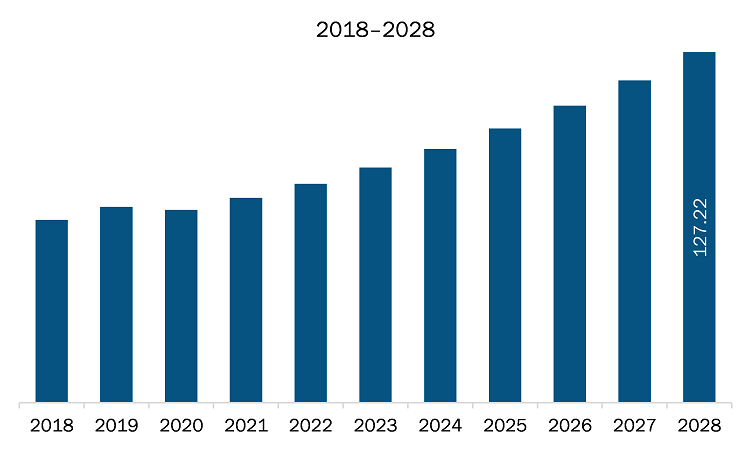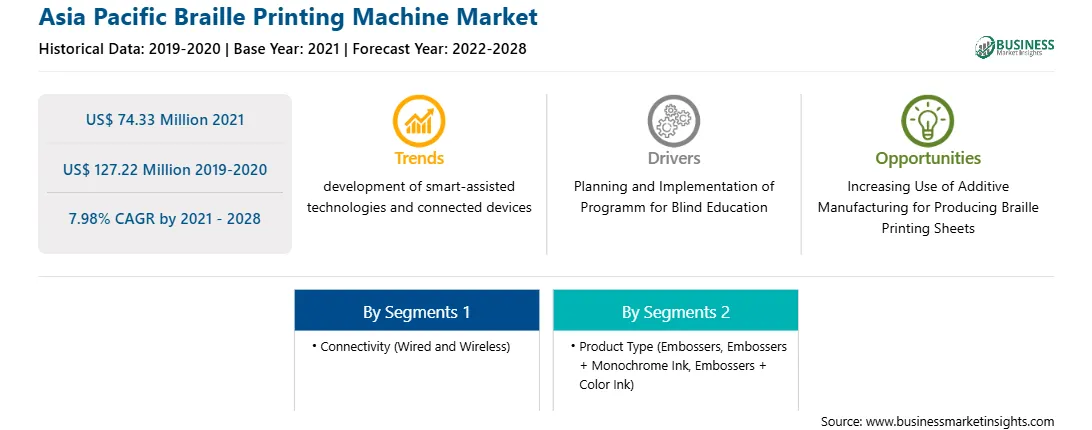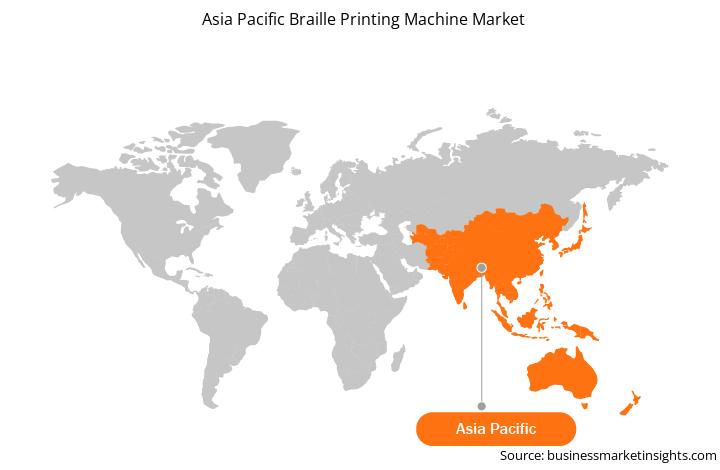APAC holds major opportunities for the braille printing machine market players due to the rise in the middle-class population and the increasing focus on having a more inclusive education structure. Rapid technological advancements, supportive policies, economic digitization, and growing disposable income, especially in the middle-income class community, are among the factors supporting the transition of economies in this region from a developing phase to a developed phase. Population growth and aging are acting as the risk factors triggering vision impairment. Major countries in Asia, for example China and India, are taking measures for the welfare and rehabilitation of all the physically disabled persons. For instance, the Chinese government implemented the National Action Plan on Standardization of Sign Language and Braille (2015–2020), which carried out research and revision of the current braille system to establish a national universal braille system, which was promoted nationwide in 2018. Furthermore, China Braille Library, with the support of government, has established a braille digital library exhibiting rich resources. In Japan, provision of braille textbooks was guaranteed to students enrolled in exclusive special education schools, but now provision of braille and large-print textbooks are guaranteed also to students who choose inclusive education in regular schools and colleges. Such government initiatives boost the demand for braille printing machines in Asian countries.
APAC is characterized by a large number of developing countries, positive economic outlook, high industrial presence, huge population, and rising disposable income. All these factors make APAC a significant growth driving region for various markets, including braille printing machine. Many braille printer users, connected devices, and the e-commerce sector in this region present a massive opportunity for the growth of the global braille printing machine market. The ongoing COVID-19 is anticipated to cause considerable disruptions in the growth of various industries of the Asia Pacific region. For example, China is the global hub of manufacturing and the most abundant raw material supplier for multiple industries, and it is one of the worst affected COVID-19 countries. The lockdown of different plants and factories in China changes the global supply chains and negatively impacts manufacturing, delivery schedules, and sales of multiple products and services

Strategic insights for the Asia Pacific Braille Printing Machine provides data-driven analysis of the industry landscape, including current trends, key players, and regional nuances. These insights offer actionable recommendations, enabling readers to differentiate themselves from competitors by identifying untapped segments or developing unique value propositions. Leveraging data analytics, these insights help industry players anticipate the market shifts, whether investors, manufacturers, or other stakeholders. A future-oriented perspective is essential, helping stakeholders anticipate market shifts and position themselves for long-term success in this dynamic region. Ultimately, effective strategic insights empower readers to make informed decisions that drive profitability and achieve their business objectives within the market.

| Report Attribute | Details |
|---|---|
| Market size in 2021 | US$ 74.33 Million |
| Market Size by 2028 | US$ 127.22 Million |
| Global CAGR (2021 - 2028) | 7.98% |
| Historical Data | 2019-2020 |
| Forecast period | 2022-2028 |
| Segments Covered |
By Connectivity
|
| Regions and Countries Covered | Asia-Pacific
|
| Market leaders and key company profiles |
The geographic scope of the Asia Pacific Braille Printing Machine refers to the specific areas in which a business operates and competes. Understanding local distinctions, such as diverse consumer preferences (e.g., demand for specific plug types or battery backup durations), varying economic conditions, and regulatory environments, is crucial for tailoring strategies to specific markets. Businesses can expand their reach by identifying underserved areas or adapting their offerings to meet local demands. A clear market focus allows for more effective resource allocation, targeted marketing campaigns, and better positioning against local competitors, ultimately driving growth in those targeted areas.

The braille printing machine market in APAC is expected to grow from US$ 74.33 million in 2021 to US$ 127.22 million by 2028; it is estimated to grow at a CAGR of 7.98% from 2021 to 2028. Growing Use of Additive Manufacturing for Producing Braille Printed Sheets; Additive manufacturing/3D printing technology is emerging as one of the most significant technique of producing electronic devices and components. It can decrease the investment needed to attain economies of scale and enhance the flexibility of electronic components; consequently, the 3D manufacturing consist of fully functional electromechanical parts is anticipated to offer lucrative opportunities for the growth of braille printed electronics technology. Additive manufacturing involves generating 3D models using a layer-by-layer process. Researchers in the UK and Spain are continuously focusing on exploring the potential of 3D printing applications to transform pharmaceuticals industry, and in 2020, they published the summary of their studies in the research paper “3D Printed Tablets (Printlets) with Braille and Moon Patterns for Visually Impaired Patients.” Thus, increasing efforts of scientists and manufacturers for extending the use of progressive methods such as braille with printlets for patient-specific treatment for preventing the dosage errors and urge the visually disabled people to continue with their medication. Therefore, the application of additive manufacturing for braille printing is creating significant opportunities for the braille printing machine market players. This is bolstering the growth of the braille printing machine market.
In terms of connectivity type, the wired segment accounted for the largest share of the APAC braille printing machine market in 2020. In terms of product type, the Embossers + color ink segment held a larger market share of the braille printing machine market in 2020.
A few major primary and secondary sources referred to for preparing this report on the braille printing machine market in APAC are company websites, annual reports, financial reports, national government documents, and statistical database, among others. Major companies listed in the report are American Thermoform, Baumer HHS GmBH, Humanware Group, Index Braille,Harpo Sp. Z.O.O, ViewPlus, Kanematsu USA, Blista Brailletec.
The Asia Pacific Braille Printing Machine Market is valued at US$ 74.33 Million in 2021, it is projected to reach US$ 127.22 Million by 2028.
As per our report Asia Pacific Braille Printing Machine Market, the market size is valued at US$ 74.33 Million in 2021, projecting it to reach US$ 127.22 Million by 2028. This translates to a CAGR of approximately 7.98% during the forecast period.
The Asia Pacific Braille Printing Machine Market report typically cover these key segments-
The historic period, base year, and forecast period can vary slightly depending on the specific market research report. However, for the Asia Pacific Braille Printing Machine Market report:
The Asia Pacific Braille Printing Machine Market is populated by several key players, each contributing to its growth and innovation. Some of the major players include:
The Asia Pacific Braille Printing Machine Market report is valuable for diverse stakeholders, including:
Essentially, anyone involved in or considering involvement in the Asia Pacific Braille Printing Machine Market value chain can benefit from the information contained in a comprehensive market report.